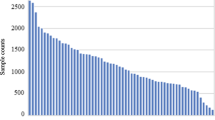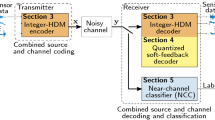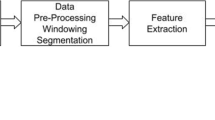Abstract
The popularization of mobile phones has promoted research on human activity recognition (HAR) based on smartphone inertial sensors. Traditional centralized approaches achieve remarkable accuracy performance, but bring unacceptable latency and raise the risk of privacy leakage. Federated learning (FL) emerges and rises to mitigate these issues by collaboratively training DNN models with edge devices without transmitting raw data, which is communicational inefficient due to the transmission of a large volume of parameters. As a light-weight, fast, and robust learning method, hyperdimensional computing (HDC) offers an alternative for classification tasks. In this work, we propose CoR-FHD, a communication-efficient and robust FL system training hyperdimensional (HD) model for smartphone-based HAR applications. In CoR-FHD, we binarize the real-valued HD models to minimize communication costs and increase robustness against network fluctuations. However, information loss attributed to binarization causes unavoidable accuracy drop. To settle this problem, a self-assisted approach is proposed to update the HD model on each node. Moreover, we point out the disadvantages of the current HDC retraining method and redesign the retraining mechanism to further improve the recognition accuracy. Experimental results based on two real-world HAR datasets demonstrate that CoR-FHD saves communication cost by 8-16\(\times \) and 30-88\(\times \) compared to previous work of federated HDC and DNN learning, and performs highly robustness against unreliable networks while achieving considerable accuracy.
This work was supported in part by the National Science Foundation of China (No. U20A20159); Guangdong Basic and Applied Basic Research Foundation (No. 2023B1515120058, No. 2021B151520008); Guangzhou Basic and Applied Basic Research Program (No. 2024A04J6367).
Access this chapter
Tax calculation will be finalised at checkout
Purchases are for personal use only
Similar content being viewed by others
References
Kairouz, P., et al.: Advances and open problems in federated learning. Foundat. Trends Mach. Learn. 14(1-2), 1-210 (2021)
Saleem, G., Bajwa, U.I., Raza, R.H.: Toward human activity recognition: a survey. Neural Comput. Appl. 35(5), 4145–4182 (2023)
Yao, Y., Liu, W., Zhang, G., Hu, W.: Radar-based human activity recognition using hyperdimensional computing. IEEE Trans. Microw. Theory Tech. 70(3), 1605–1619 (2022)
Ramanujam, E., Perumal, T., Padmavathi, S: Human activity recognition with smartphone and wearable sensors using deep learning techniques: areview. IEEE Sens. J. 21(12), 13029–13040 (2021)
Qiao, J., et al.: Communication resources limited decentralized learning with privacy guarantee through over-the-air computation. In: MobiHoc 2023, pp. 201-210. ACM, New York (2023)
Wu, Q., Chen, X., Zhou, Z., Zhang, J.: FedHome: cloud-edge based personalized federated learning for in-home health monitoring. IEEE Trans. Mob. Comput. 21(8), 2818–2832 (2022)
Imani, M., Kim, Y., Riazi, S., Messerly, J., Liu, P., Koushanfar, F., Rosing, T.: A framework for collaborative learning in secure high-dimensional space. In: CLOUD 2019, pp. 435-446. IEEE, Milan, Italy (2019)
Zhao, Q., Lee, K., Liu, J., Huzaifa, M., Yu, X., Rosing, T.: FedHD: federated learning with hyperdimensional computing. In: MobiCom 2022, pp. 791-793. ACM, New York, USA (2022)
Chandrasekaran, R., Ergun, K., Lee, J., Nanjunda, D., Kang, J., Rosing, T.: FHDNN: communication efficient and robust federated learning for AIoT networks. In: DAC 2022, pp. 37-42. ACM, New York, USA (2022)
Imani, M., Morris, J., Messerly, J., Shu, H., Deng, Y., Rosing, T.: Bric: locality-based encoding for energy-efficient braininspired hyperdimensional computing. In: DAC 2019, pp. 1-6. ACM, Las Vegas, USA (2019)
Anguita, D., Ghio, A., Oneto, L., Parra Perez, X., Reyes Ortiz, J. L.: A public domain dataset for human activity recognition using smartphones. In: ESANN 2013, pp. 437-442. Bruges, Belgium (2013)
Vavoulas, G., Chatzaki, C., Malliotakis, T., Pediaditis, M., Tsiknakis, M.: The MobiAct dataset: recognition of activities of daily living using smartphones. In: ICT4AgeingWell 2016, pp. 143-151. Springer, Rome, Italy (2016)
Vavoulas, G., Pediaditis, M., Chatzaki, C., Spanakis, E.G., Tsiknakis, M.: The MobiFall dataset: fall detection and classification with a smartphone. Inter. J. Monitoring Surveillance Technol. Res. 2(1), 44–56 (2014)
Tao, Y., et al.: Byzantine-resilient federated learning at edge. IEEE Trans. Computers 72(9), 2600-2614 (2023)
Author information
Authors and Affiliations
Corresponding author
Editor information
Editors and Affiliations
Rights and permissions
Copyright information
© 2025 The Author(s), under exclusive license to Springer Nature Switzerland AG
About this paper
Cite this paper
Guo, Y., Zhan, Z., Chen, X. (2025). CoR-FHD: Communication-Efficient and Robust Federated Hyperdimensional Computing for Activity Recognition. In: Cai, Z., Takabi, D., Guo, S., Zou, Y. (eds) Wireless Artificial Intelligent Computing Systems and Applications. WASA 2024. Lecture Notes in Computer Science, vol 14998. Springer, Cham. https://doi.org/10.1007/978-3-031-71467-2_8
Download citation
DOI: https://doi.org/10.1007/978-3-031-71467-2_8
Published:
Publisher Name: Springer, Cham
Print ISBN: 978-3-031-71466-5
Online ISBN: 978-3-031-71467-2
eBook Packages: Computer ScienceComputer Science (R0)




